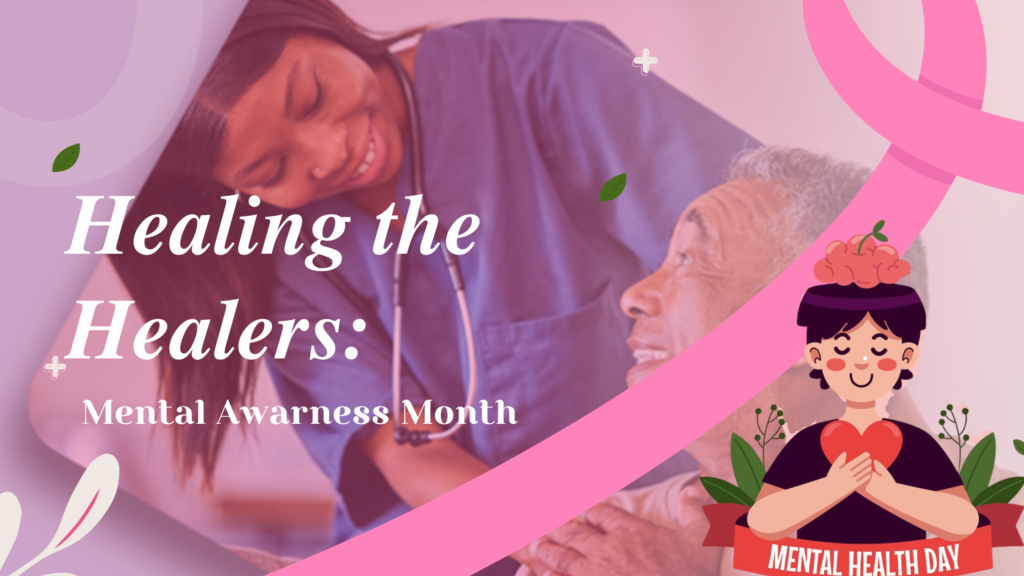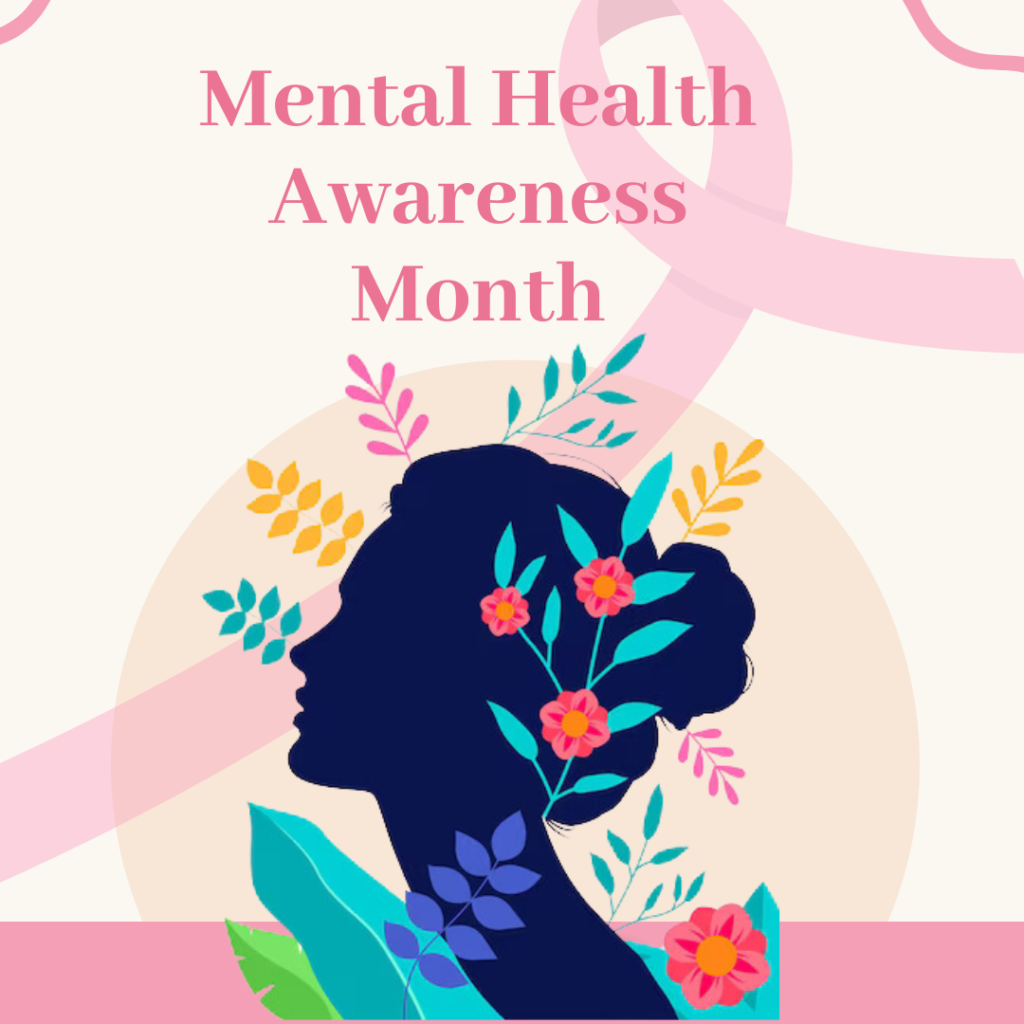
As Nurses Week coincides with Mental Health Awareness Month, it’s essential to shine a spotlight on the mental well-being of our healthcare heroes. In the bustling world of healthcare, nurses are often the unsung champions, tirelessly caring for others while neglecting their own mental health needs. This convergence of observances prompts a crucial conversation about prioritizing mental wellness within the nursing profession.
Recognizing the Strain:
Nursing is not just a profession; it’s a calling. Yet, the demands of the job can exact a toll on even the most resilient individuals. According to a study published in JAMA Psychiatry in 2019, female nurses were 70% more likely to die by suicide compared to women in other professions, while male nurses had a 41% higher risk compared to men in other occupations. These alarming numbers underscore the urgent need to address the mental health challenges faced by nurses.
Breaking the Silence:
Despite the prevalence of mental health issues among nurses, there remains a pervasive stigma surrounding seeking help. It’s time to shatter this silence and create a culture that encourages open dialogue about mental wellness. By normalizing conversations about mental health, we can empower nurses to prioritize self-care without fear of judgment or repercussions.

Practical Self-Care Tips For Nurse
Set Boundaries:
Establishing boundaries is crucial for maintaining a healthy work-life balance. It involves knowing your limits and being able to communicate them effectively. As a nurse, you might often feel pressure to take on extra shifts or responsibilities, but it’s important to recognize when you need to prioritize your own well-being. Setting boundaries can involve saying no to additional work when you’re feeling overwhelmed, protecting your days off for rest and relaxation, and being assertive about your needs with colleagues and supervisors.
Stay Hydrated:
Dehydration can lead to fatigue, headaches, and decreased cognitive function, which can impair a nurse’s ability to provide quality care. Drinking plenty of water throughout the day is essential for staying hydrated and maintaining optimal health. Carrying a reusable water bottle and setting reminders to drink regularly can help nurses stay hydrated during busy shifts.
Practice Mindfulness:
Mindfulness involves being present in the moment without judgment, which can help nurses manage stress and prevent burnout. Taking short breaks to practice mindfulness techniques such as deep breathing, meditation, or mindful walking can promote relaxation and mental clarity. Incorporating mindfulness into daily routines can enhance resilience and coping skills.
Engage in Regular Exercise:
Regular exercise is beneficial for physical and mental health. It helps to reduce stress, boost mood, and improve overall well-being. Nurses can incorporate physical activity into their daily lives by taking walks during breaks, participating in group fitness classes, or engaging in activities they enjoy, such as yoga or dancing. Finding enjoyable ways to stay active can make exercise feel like a rewarding self-care practice.

Nourish the Body with Healthy Nutrition:
Proper nutrition is essential for maintaining energy levels and supporting overall health. Nurses should prioritize consuming a balanced diet rich in fruits, vegetables, lean proteins, and whole grains. Planning and preparing nutritious meals and snacks ahead of time can help nurses make healthier choices, even during busy shifts. Fueling the body with nutrient-dense foods can enhance vitality and resilience.
Establish Boundaries:
Setting boundaries is crucial for maintaining a healthy work-life balance and preventing burnout. Nurses should learn to say no to additional shifts or responsibilities when necessary and prioritize activities that replenish their energy outside of work. Establishing clear boundaries with colleagues, patients, and supervisors can help nurses protect their time and well-being.
Connect with Supportive Relationships:
Strong social connections are essential for emotional support and resilience, especially in high-stress professions like nursing. Nurses should nurture relationships with friends, family members, and colleagues who provide encouragement, empathy, and understanding. Making time for social activities and meaningful interactions can foster a sense of belonging and reduce feelings of isolation.
Engage in Hobbies and Activities:
Engaging in hobbies and activities outside of work is vital for relaxation and enjoyment. Nurses should make time for activities they love, whether it’s reading, gardening, painting, or playing sports. Pursuing hobbies can provide a much-needed break from the demands of nursing and allow nurses to recharge and reconnect with their passions.
Seek Professional Support:
Nursing can be emotionally taxing, and it’s essential for nurses to seek professional support when needed. Whether through counseling, therapy, or support groups, accessing mental health resources can help nurses process their experiences, manage stress, and develop healthy coping strategies. Seeking support is a sign of strength and self-awareness.
Supporting Our Nurses:
In addition to individual efforts, it’s imperative for healthcare organizations to prioritize the mental health of their nursing staff. A survey conducted by the American Nurses Association (ANA) in 2021 found that nearly 80% of nurses reported experiencing burnout. Factors contributing to burnout include heavy workloads, understaffing, lack of resources, and exposure to traumatic events. This highlights the urgent need for better support and resources to address the mental health challenges faced by nurses.
This Nurses Week and Mental Health Awareness Month, let’s reaffirm our commitment to supporting the mental well-being of our nurses. By acknowledging their invaluable contributions and prioritizing their mental health needs, we honor their dedication and ensure a healthier, more resilient healthcare workforce for the future. Together, let’s heal the healers and cultivate a culture of wellness within the nursing profession.




